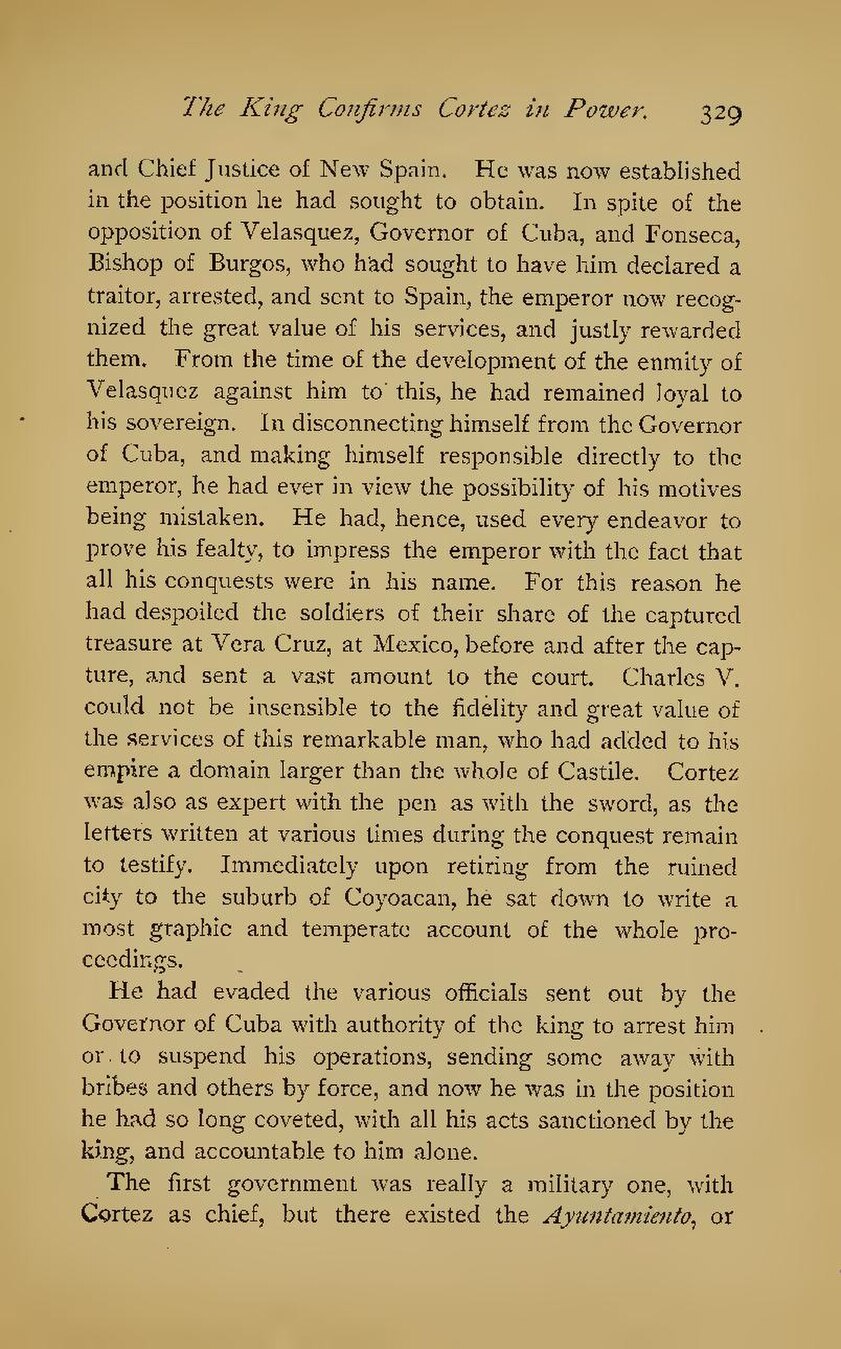and Chief Justice of New Spain. He was now established in the position he had sought to obtain. In spite of the opposition of Velasquez, Governor of Cuba, and Fonseca, Bishop of Burgos, who had sought to have him declared a traitor, arrested, and sent to Spain, the emperor now recognized the great value of his services, and justly rewarded them. From the time of the development of the enmity of Velasquez against him to this, he had remained loyal to his sovereign. In disconnecting himself from the Governor of Cuba, and making himself responsible directly to the emperor, he had ever in view the possibility of his motives being mistaken. He had, hence, used every endeavor to prove his fealty, to impress the emperor with the fact that all his conquests were in his name. For this reason he had despoiled the soldiers of their share of the captured treasure at Vera Cruz, at Mexico, before and after the capture, and sent a vast amount to the court. Charles V. could not be insensible to the fidelity and great value of the services of this remarkable man, who had added to his empire a domain larger than the whole of Castile. Cortez was also as expert with the pen as with the sword, as the letters written at various times during the conquest remain to testify. Immediately upon retiring from the ruined city to the suburb of Coyoacan, he sat down to write a most graphic and temperate account of the whole proceedings.
He had evaded the various officials sent out by the Governor of Cuba with authority of the king to arrest him or to suspend his operations, sending some away with bribes and others by force, and now he was in the position he had so long coveted, with all his acts sanctioned by the king, and accountable to him alone.
The first government was really a military one, with Cortez as chief, but there existed the Ayuntamiento, or
